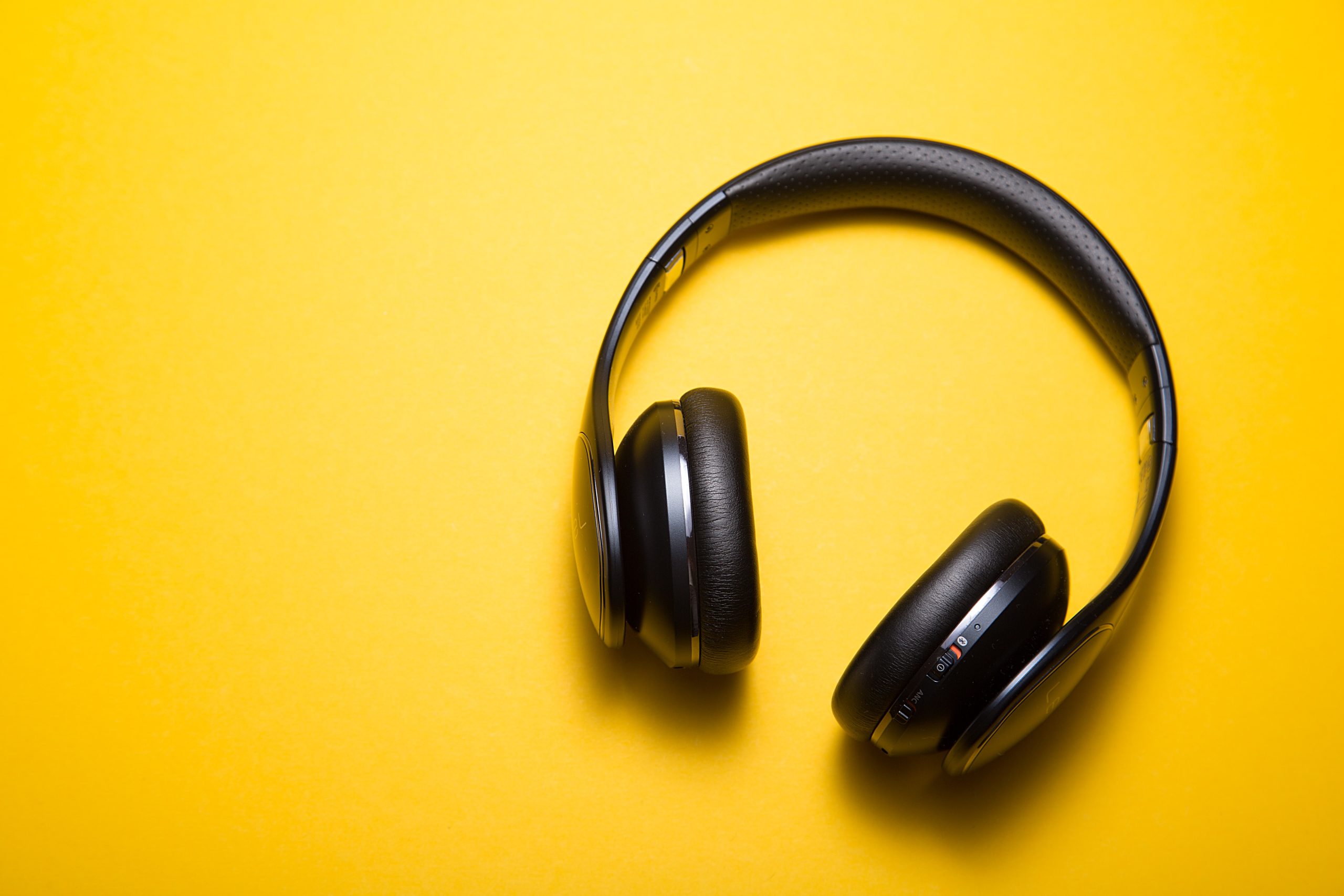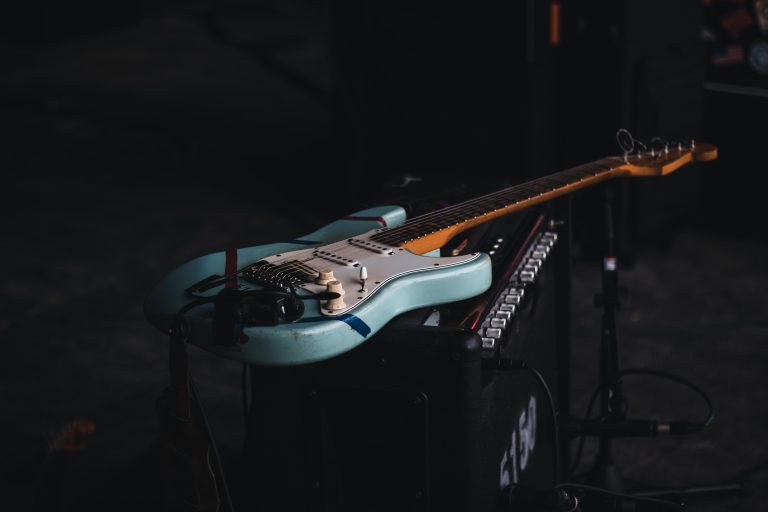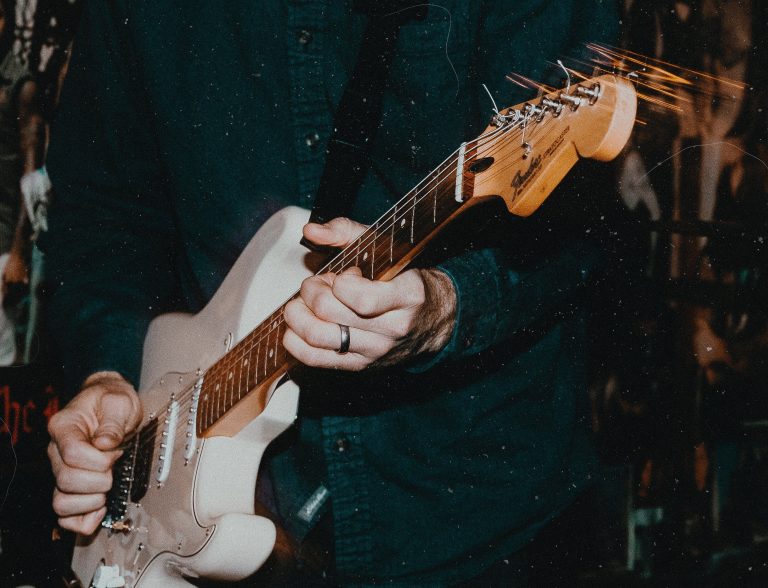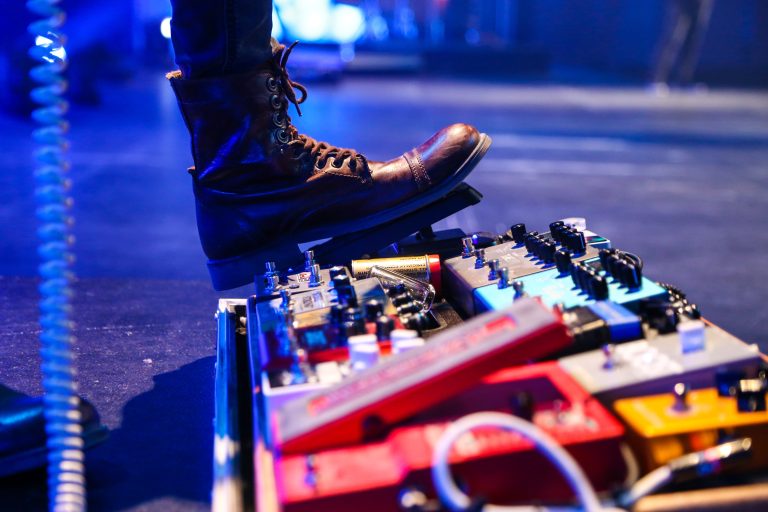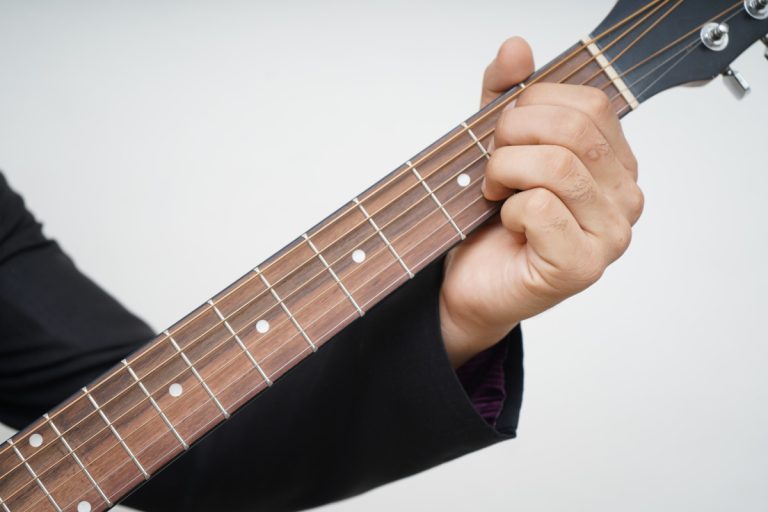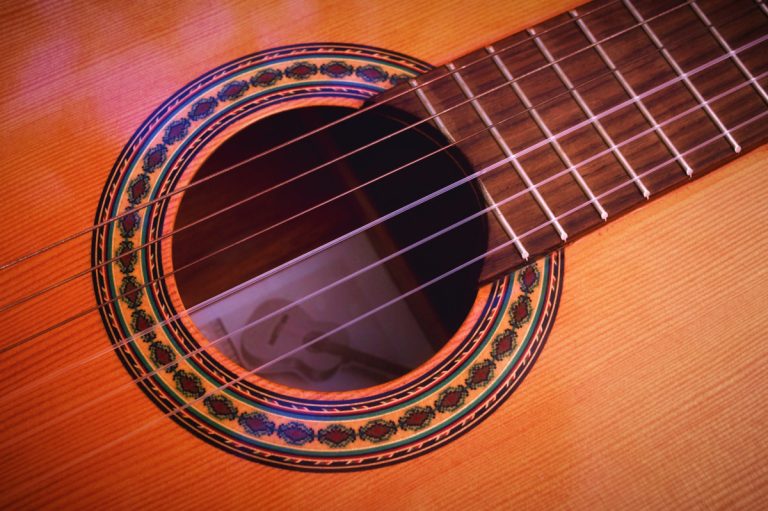If you’re a keyboard or piano player, you know the importance of having a good pair of headphones. Not only do they allow you to practice without disturbing others, but they also provide a more immersive experience by blocking out external noise.
With so many options on the market, choosing the right pair for your needs can be overwhelming.
When shopping for a quality pair of headphones for your keyboard or piano, there are a few things to consider. First, you’ll want to look for a pair with good sound quality, comfortable to use, durable, and reliable.
In this article, we’ll look at some of the best headphones for keyboard and piano players. Whether jamming in your bedroom or laying down tracks in the studio, the right pair of headphones can make all the difference in the world.
So keep reading to find the perfect set of headphones for you.
Why are digital piano headphones useful?
If you’re a pianist who plays on a keyboard or digital piano, you know that the sound quality of your instrument is paramount to your performance. However, not everyone has the luxury of playing on a high-end acoustic piano or a top-of-the-line digital piano with built-in speakers.
That’s where headphones come in.
Using headphones with your keyboard piano can have several benefits (plus a few drawbacks).
Benefits of Using Headphones
One of the biggest advantages of using headphones with your keyboard piano is that you can practice or perform without disturbing anyone else in the room or nearby. This is especially important if you live in an apartment or have roommates or family members who might not be particularly keen on your blasting out a piano concerto at 3am!
With digital piano headphones, you can play as loudly as you want without worrying about complaints or noise restrictions.
Finally, using headphones can give you a more immersive playing piano experience from the actual sound. With the right headphones, you can feel like you’re in your own private concert hall, surrounded by your piano’s rich, full sound.
Drawbacks of Using Speakers
While there are many benefits to using headphones with your keyboard piano, there are also a few drawbacks. One of the biggest drawbacks is that headphones can be uncomfortable to wear for long periods of time, especially if you’re using over-ear headphones.
This can be particularly problematic if you’re practising or performing for hours and need breaks to rest your ears.
Another drawback of using headphones is that they can be expensive, especially if you’re looking for high-quality headphones that can reproduce the full range of your keyboard piano’s sound.
Finally, practising the piano using headphones can be isolating, especially if you’re used to playing with other musicians or in front of an audience. With headphones, you’re in your own world, which can be great for practising, but is most definetly not ideal for performing or collaborating with others!
Types of Headphones for Keyboard Piano
If you’re looking for headphones for your keyboard piano, several types are available. Each type has advantages and disadvantages, and choosing the right one for your needs can be overwhelming.
Let’s take a look at them:
Over-Ear Headphones
Over-ear headphones are designed to cover your ears completely. They’re generally considered the most comfortable headphones, as they distribute the weight evenly across your head. Over-ear headphones also provide excellent noise isolation, which is important if you play in a noisy environment.
One disadvantage of over-ear headphones is that they can be bulky and heavy, which means they can get hot and sweaty after extended use, which can be uncomfortable.
In-Ear Headphones
In-ear headphones, also known as earbuds or in-ear monitors, are designed to fit snugly inside your ear canal. They’re very portable and lightweight, making them a popular choice for people always on the go.
In-ear headphones also provide good noise isolation, although not as good as over-ear headphones.
One disadvantage of in-ear headphones is that they can be uncomfortable for some people, especially if they don’t fit properly. If you go for in-ears, it’s best to get custom moulded ones.
On-Ear Headphones
On-ear headphones are designed to rest on your ears. They’re generally more portable than over-ear headphones but provide good noise isolation. On-ear headphones are also less bulky and heavy than over-ear headphones, making them more comfortable to wear for extended periods of time.
One disadvantage of on-ear headphones is that they leak more sound than over-ear headphones, which can be problematic when recording music.
Features to Consider When Choosing Headphones
When choosing headphones for your keyboard piano, there are several features you should consider to ensure you get the best experience possible. Here are some key features to keep in mind:
Noise Cancellation
Noise cancellation is an important feature in such headphones if you want to block out external noise and focus on your music. Look for headphones with active noise cancellation, which uses microphones to detect external noise and then cancel it out with an opposite sound wave.
Comfort and Fit
Comfort and fit are crucial when choosing headphones for extended periods of use. Look for headphones with soft ear cushions and an adjustable headband to ensure a comfortable fit. Over-ear headphones are generally more comfortable than on-ear headphones, but on-ear headphones are more portable and lightweight.
Sound Quality
Sound quality is arguably the most important feature when choosing headphones. Look for headphones with a balanced sound profile with clear highs, mids, and lows. Closed-back headphones are ideal for keyboard piano use as they block out external noise and prevent sound leakage.
Durability
Durability is another important feature to consider, especially if you plan on using your headphones frequently. Look for headphones that are made with high-quality materials and have a sturdy build. Headphones with detachable cables are also a good option, as they’re less likely to break.
Portability
If you plan on taking your headphones with you on the go, portability is an important feature. Look for headphones that are lightweight and foldable for easy storage. In-ear headphones and on-ear headphones are generally more portable than over-ear headphones.
Tips on How to Choose the Best Headphones for You
When it comes to choosing the best headphones for your keyboard piano, there are a few things you need to consider. Here are some tips to help you make the right choice:
Tip #1 – Comfort: You’ll be wearing your headphones for long periods, so you must ensure they’re comfortable. Look for headphones with soft padding and an adjustable headband.
Tip #2 – Sound Quality: Your headphones’ overall sound and quality are essential. You want to hear all the nuances in your music, so look for headphones with a wide frequency range and good bass response.
Tip #3 – Wired vs Wireless: Do you want wired or wireless headphones? Wireless headphones offer more freedom of movement, but wired headphones generally offer better sound quality.
Tip #4 – Open vs Closed Back: Open-back headphones provide a more natural, spacious sound, while closed-back headphones offer better noise isolation. Consider where you’ll be using your headphones and choose accordingly.
Tip #5 – Price: Headphones come in a wide range of prices, so it’s important to set a budget before shopping. Keep in mind that higher-priced headphones don’t always mean better quality.
Ultimately, your best headphones will depend on your preferences and needs. Take your time to research and try out different models before making a decision. With the right headphones, you’ll be able to fully immerse yourself in your music and enjoy playing your keyboard piano even more.
Top Headphones for Keyboard Piano
Sennheiser HD 599 Special Edition
Powered by Sennheiser proprietary transducer technology, these over-ear headphones are perfect for audiophiles looking for a slightly warm and well-balanced sound profile. They also have an open-back design that offers a wide and open soundstage, making you feel like you’re in your favourite music studio.
They’re very cushioned and comfortable, perfect for long listening sessions.
Sennheiser HD 599 Special Edition, Open Back Headphone
FOR SPACIOUS SOUND QUALITY
Perfect For: audiophiles and music enthusiasts
Features:
- Has an open-back design for a natural and spacious sound
- With an advanced acoustic system with neodymium magnets for high-quality audio
- Includes two detachable cables for versatile use
Pros:
- Detailed in the treble with nice sparkle
- Comes with a well-padded headband and ear cups for superior wearing comfort
Cons:
- Can be a little bulky for some users
The TedScore: 9/10
Audio-Technica M40x
These wired headphones are perfect for professionals who need high-quality sound for studio tracking, mixing, and monitoring. They offer superior sound isolation and flat sound response, which means you’re getting accurate sound faithful to the recording.
The sound is full-bodied and potent, with great dynamics and balance. It’s not just studio pros that will appreciate these headphones, though. They’re also great for DJs and music lovers who want crystal-clear sound and an above-average listening experience.
Audio-Technica M40x Professional Studio Headphones
FOR GREAT DYNAMICS AND BALANCE
Perfect For: home and studio use
Features:
- With a cutting-edge engineering and robust construction
- Tuned flat for incredibly accurate sound monitoring across the entire frequency range
- Has professional-grade earpad and headband material for durability and comfort
Pros:
- Accurate and well-balanced sound quality, ideal for monitoring and recording in a studio setting
- Sturdy build quality and comfortable fit for extended use
Cons:
- Average noise isolation
The TedScore: 8.5/10
AKG K72
These headphones are excellent for aspiring musicians, producers, or even casual listeners who appreciate the good sound quality. The K72 features a closed-back design, reducing sound leakage and creating a more immersive experience.
The headphones have a decent frequency response and a sound signature that’s well-balanced and natural. The build quality is reliable, and the lightweight design makes them comfortable for extended periods.
AKG K72 Closed-Back Headphones
PERFECT COMBINATION FOR STUDIO CANS
Perfect For: studio work and general listening on a daily basis
Features:
- Professional 40mm drivers with a 16Hz – 20kHz frequency response reveal every nuance
- Mix with confidence thanks to a neutral sound signature and accurate sound reproduction
- Excellent isolation with a closed-back design and large circumaural ear cups
Pros:
- Offers a serious performance and outstanding comfort
- Immersive isolation with minimised bleed
Cons:
- Bulky headphones
The TedScore: 8/10
Sony MDR7506
These headphones are designed with a large diaphragm and foldable capabilities. The MDR7506 also has a protective carry pouch and gold-plated UnimatchTM adaptor, ensuring easy transportation and compatibility with various audio devices. Thanks to their metal extension and circumaural closed-back design, you’ll find that these headphones are incredibly lightweight and comfortable to wear for long periods of time.
Plus, with the unmistakable lettering that screams “professional” and “Sony”, you know you’re making a great choice.
Sony MDR7506 Professional Large Diaphragm Headphone
LIGHTWEIGHT AND DURABLE
Perfect For: studio use or live performances
Features:
- With neodymium magnets and 40-millimetre drivers for powerful, detailed sound
- Closed ear design provides comfort and outstanding reduction of external noises
- Includes a 9.8-ft cord that ends in a gold-plated undetachable plug
- Frequency Response: 10 Hertz to 20 kilohertz
Pros:
- With rugged construction and a secure, highly effective closed-ear design
- Folds up for storage or travel in a provided soft case
Cons:
- The ear cups may not be as comfortable for extended use as some higher-end headphone
The TedScore: 8/10
Beyerdynamic DT 770 Pro
This headphone’s sound quality is top-notch, with a neutral balance perfect for critical listening. Moreover, they’re built to last, featuring a solid metal frame and dense ear cups that can handle even the toughest wear and tear.
They even come with swappable ear pads to ensure you stay comfortable during long listening sessions.
Beyerdynamic DT 770 Pro Headphones, 80 Ohm
EXCELLENT SOUND AND BUILD QUALITY
Perfect For: mixing and mastering audio
Features:
- Ideal for studio applications with 80-ohm impedance
- Clear and articulate sound from a closed-back design
- Accurate frequency reproduction thanks to the top-notch impulse response
Pros:
- Allows you to wear it for hours without discomfort
- Provides accurate listening to your mixes, masters, and edits
Cons:
- The long cable and bulky size may not be preferred by some pianists
The TedScore: 8.8/10
Roland RH-5
Equipped with high-performance 40mm drivers and large-scale housings, these headphones provide clear and dynamic sound that is perfect for musical-instrument practice or simply listening to your favourite tunes.
What’s more, the closed-back design offers excellent sound isolation and ensures a comfortable fit that won’t slip or slide while you’re playing the piano.
Roland RH-5 Quality Comfort-Fit Headphones
AFFORDABLE WITH GOOD QUALITY
Perfect For: musicians and audio enthusiasts
Features:
- Equipped with high-performance 40mm drivers for dynamic sound
- Provides a natural, balanced response for a range of instruments
- Secure and comfortable lightweight design
Pros:
- Offers exceptional value and high-quality performance
- Includes conversion plug to accommodate standard and mini headphone connectors
Cons:
- The ear padding may not be as durable as some higher-end headphones
The TedScore: 7/10
Yamaha HPH-150B Open-Air Neutral Palette Headphones
These open-air headphones feature small, soft, lightweight velour ear pads that offer outstanding comfort for extended listening and long practice sessions. Additionally, the swivel mechanism allows you to adjust the headphones to fit the angle of your ears perfectly.
The HPH-150B’s neutral tone palette is great for listening to digital musical instrument sounds in high fidelity.
Yamaha HPH-150B Open-Air Neutral Palette Headphones
PFOR PRECISE TONAL QUALITY
Perfect For: digital instrument players
Features:
- Open-air headphones with a neutral tone palette for faithful reproduction of digital musical instrument sounds
- With small, soft, light-weight velour ear pads and a swivel mechanism to properly fit your ear angle
- Includes a gold-plated stereo plug and 2-meter cable for easy, convenient connection
Pros:
- Compact, fashionable design available in black or white to match your instrument
- Ideal for digital piano playing, mixing and mastering, and music listening
Cons:
- There’s no padding on the headband
The TedScore: 7/10
Summary – Headphones For Keyboard Piano
You did it! You’ve reached the end of our ultimate guide on headphones for digital piano players.
Remember, the most important thing when choosing the best headphones for digital pianos is to find a pair that suits your needs and preferences. Whether you’re looking for noise-cancelling headphones for a quiet practice session or open-back headphones for a more natural sound, plenty of options are available.
So, what are you waiting for? Go ahead and pick out the perfect pair of headphones that will elevate your playing experience. Remember to prioritize your comfort, sound quality, and budget when deciding.
Happy playing!
FAQ’s
Can you plug headphones into a piano keyboard?
Yes, you can plug headphones into a piano keyboard. The receptacle on your keyboard that accepts the headphone is a jack, and the connector at the end of the cable is a plug.
Should I use open or closed headphones for a digital piano?
It depends on your personal preference and situation. Open headphones may be better if you want more detail and realism, but if you want more power and bass, or to avoid sound leakage, closed headphones may be the way to go.
Can I use any headphones with the keyboard?
It depends on the brand of keyboard and the type of headphone connector it has. Some keyboards have a standard 1/4-inch or 1/8-inch headphone jack, while others may require a specific connector type, such as USB or Lightning.
Can I use noise cancelling for digital piano?
Yes, you can use noise-cancelling headphones with a digital piano but remember that they may not completely cancel out all the piano sounds. It’s also important to note that noise-cancelling headphones can sometimes affect sound quality, so it’s a matter of personal preference.
